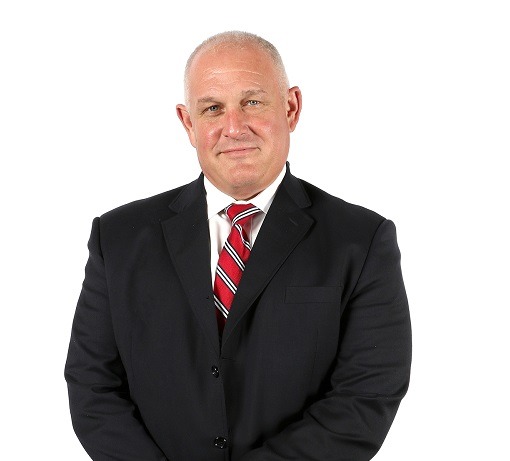On August 14, 2019, the U.S. Department of Homeland Security announced a final rule, which pertains public charge. Being a public charge is a separate inadmissibility ground for applicants for adjustment of status. Traditionally, public charge has been defined as a person who is likely to become or has become “primarily dependent on the government for sustenance,” which is evident either by the receipt of public cash assistance programs or “institutionalization for long-term care at government expense.” (See Field Guidance on Deportability and Inadmissibility on Public Charge Grounds.” 64 FR 28689 (May 26, 1999).
Typically, the receipt of certain public benefits such as Supplemental Security Income, Temporary Assistance for Needy Families, state and local cash assistance programs, and Medicaid to support institutionalization for long-term care will subject individuals to the public charge inadmissibility grounds. This list is going to be expanded under the new rule. The new rule comes a result of this administration’s stance that individuals coming to the United States, whether temporarily or permanently, should be self-sufficient financially and depend on themselves or family members for support rather on the government. The effective date for the rule to take effect is October 15, 2019 and will apply to green card applicants or those who are coming to this country for specific periods of time. The rule will not apply to individuals who are already green card holders and who are seeking to become United States citizens. Due to several lawsuits already filed challenging the legality of the new rule, the actual implementation may end up being delayed.
The new public charge rule is complicated. Individuals who will be impacted by it or simply want to know more about it should consider consulting a reputable immigration attorney for guidance. Here are some pertinent points listed in the new rule:
- Definition of the public charge will change – rather than looking at whether an applicant is likely
to become primarily dependent on the government for income support, the government will now consider if an applicant received any number of public benefits for more than 12 months in aggregate over any 36-month period of time. Each benefit used will be counted toward the 12-month calculation
- The list of publicly-funded programs triggering the public charge determination will be expanded to include Medicaid (unless received under age 21 or while pregnant), Food Stamps, Section 8 housing assistance and federally subsidized housing, and any use of cash of aid assistance programs
- In determining the public charge, the immigration officers can consider, in addition to prior receipt of benefits, several factors such as financial resources, family size, age, education, employment, English proficiency, medical conditions and availability of private health insurance, and past use of immigration fee waivers
- Immigrants will be required to fill out a Declaration of Self-Sufficiency when applying for adjustment of status
- At times, the government will have discretionary power to offer to an individual inadmissible on the public charge ground a chance to post a bond. The minimum bond amount will be $8100.00. However, the actual bond amount can be higher dependent on individual circumstances
- Refugees, asylees, Special Immigrant Juveniles, certain trafficking victims, victims of qualifying criminal acts, or victims of domestic violence will be exempt from the new rule
It is expected that the government will provide additional guidance on how the new rule will be
implemented and followed. As mentioned earlier, it is also possible that the new rule could be blocked by the courts in light the legal suits already filed in this matter. However, now is the best time to contact an immigration attorney about this new change.
At Wilner & O’Reilly, we understand the complexities of the immigration laws and their consequences on families and individuals. We are experienced and are here to help. If you have any questions about unlawful voting or any other immigration matters, please do not hesitate to contact us. We offer free, in-person consultations at our offices in Orange, Fresno, Riverside, Sacramento, and San Bruno, California, as well as Orem and Salt Lake City, Utah, and Boise, Idaho.
ABOUT THE AUTHOR(S)

AGNIESZKA (AGGIE) DOLINSKA – MANAGING ATTORNEY – RIVERSIDE
Aggie Dolinska is the Managing Attorney at the Riverside Office of Wilner & O’Reilly. She is Board Certified as a specialist in immigration and nationality law by the State Bar of California’s Bureau of Legal Specialization. Ms. Dolinska’s immigration practice involves all areas of Immigration and Nationality Law, including family and employment-based immigration, non-immigrant visas, removal defense, litigation, and asylum law.

RICHARD M. WILNER – FOUNDING PARTNER
Richard M. Wilner is a founding member of Wilner & O’Reilly, APLC and is Board Certified by the State Bar of California as a Specialist in Immigration and Nationality Law. He is admitted to practice law in the State of California and before the U.S. District Courts for the Central, Northern and Southern Districts of California, the Northern District of Texas, the U.S. Court of Appeals for the Ninth Circuit and the U.S. Supreme Court.Mr. Wilner has received the coveted Martindale-Hubbell AV Rating, the highest legal and ethical rating that one can receive from one’s peers in the legal community. Similarly, he has been awarded the title of Super Lawyer from 2007 to the present. He is best known for his work in advising Fortune 500 companies, middle and small market businesses, entrepreneurs and foreign nationals of extraordinary ability in athletics, arts, and sciences in the complex area of U.S. Immigration and Nationality Law.


Comments are closed.